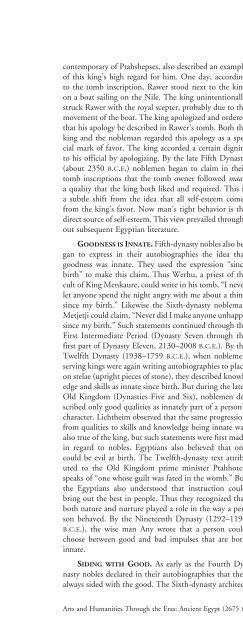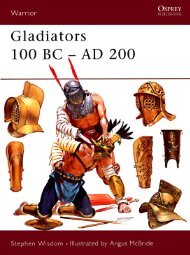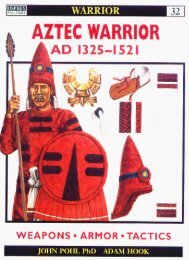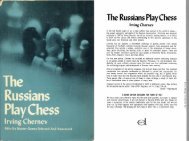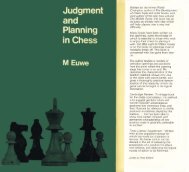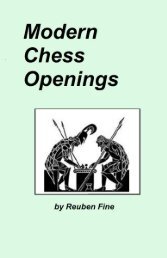Through the Eras
Edward Bleiberg ed., Ancient Egypt (2675-332 ... - The Fellowship
Edward Bleiberg ed., Ancient Egypt (2675-332 ... - The Fellowship
You also want an ePaper? Increase the reach of your titles
YUMPU automatically turns print PDFs into web optimized ePapers that Google loves.
Literaturecontemporary of Ptahshepses, also described an exampleof this king’s high regard for him. One day, accordingto <strong>the</strong> tomb inscription, Rawer stood next to <strong>the</strong> kingon a boat sailing on <strong>the</strong> Nile. The king unintentionallystruck Rawer with <strong>the</strong> royal scepter, probably due to <strong>the</strong>movement of <strong>the</strong> boat. The king apologized and orderedthat his apology be described in Rawer’s tomb. Both <strong>the</strong>king and <strong>the</strong> nobleman regarded this apology as a specialmark of favor. The king accorded a certain dignityto his official by apologizing. By <strong>the</strong> late Fifth Dynasty(about 2350 B.C.E.) noblemen began to claim in <strong>the</strong>irtomb inscriptions that <strong>the</strong> tomb owner followed maat,a quality that <strong>the</strong> king both liked and required. This isa subtle shift from <strong>the</strong> idea that all self-esteem comesfrom <strong>the</strong> king’s favor. Now man’s right behavior is <strong>the</strong>direct source of self-esteem. This view prevailed throughoutsubsequent Egyptian literature.GOODNESS IS INNATE. Fifth-dynasty nobles also beganto express in <strong>the</strong>ir autobiographies <strong>the</strong> idea thatgoodness was innate. They used <strong>the</strong> expression “sincebirth” to make this claim. Thus Werhu, a priest of <strong>the</strong>cult of King Menkaure, could write in his tomb, “I neverlet anyone spend <strong>the</strong> night angry with me about a thingsince my birth.” Likewise <strong>the</strong> Sixth-dynasty noblemanMetjetji could claim, “Never did I make anyone unhappysince my birth.” Such statements continued through <strong>the</strong>First Intermediate Period (Dynasty Seven through <strong>the</strong>first part of Dynasty Eleven, 2130–2008 B.C.E.). By <strong>the</strong>Twelfth Dynasty (1938–1759 B.C.E.), when noblemenserving kings were again writing autobiographies to placeon stelae (upright pieces of stone), <strong>the</strong>y described knowledgeand skills as innate since birth. But during <strong>the</strong> laterOld Kingdom (Dynasties Five and Six), noblemen describedonly good qualities as innately part of a person’scharacter. Lich<strong>the</strong>im observed that <strong>the</strong> same progressionfrom qualities to skills and knowledge being innate wasalso true of <strong>the</strong> king, but such statements were first madein regard to nobles. Egyptians also believed that onecould be evil at birth. The Twelfth-dynasty text attributedto <strong>the</strong> Old Kingdom prime minister Ptahhotepspeaks of “one whose guilt was fated in <strong>the</strong> womb.” But<strong>the</strong> Egyptians also understood that instruction couldbring out <strong>the</strong> best in people. Thus <strong>the</strong>y recognized thatboth nature and nurture played a role in <strong>the</strong> way a personbehaved. By <strong>the</strong> Nineteenth Dynasty (1292–1190B.C.E.), <strong>the</strong> wise man Any wrote that a person couldchoose between good and bad impulses that are bothinnate.SIDING WITH GOOD. As early as <strong>the</strong> Fourth Dynastynobles declared in <strong>the</strong>ir autobiographies that <strong>the</strong>yalways sided with <strong>the</strong> good. The Sixth-dynasty architectMORAL DECLARATIONS FROM THEAUTOBIOGRAPHY OF NEFER-SESHEM-REINTRODUCTION: From <strong>the</strong> Fourth Dynasty (2625–2500B.C.E.) to <strong>the</strong> Sixth Dynasty (2350–2170 B.C.E.), <strong>the</strong>basis of autobiographies’ claims to <strong>the</strong> moral lifedepend on changing grounds. The earliest autobiographiesspeak only of fulfilling obligations to <strong>the</strong>immediate family, especially <strong>the</strong> fa<strong>the</strong>r. Subsequently,obedience to <strong>the</strong> king becomes <strong>the</strong> highestmoral value. Finally, in <strong>the</strong> Sixth Dynasty, menlike Nefer-seshem-re claim a much broader understandingof social obligations that constitute <strong>the</strong> basisfor moral action.I have gone from my town,I have descended from my nome,Having done Maat for its lord,Having contented him with what he loves.I spoke truly [using <strong>the</strong> word ma’a], I did right [using<strong>the</strong> related word ma’at],I spoke <strong>the</strong> good [using <strong>the</strong> word nefer], I repeated<strong>the</strong> good [nefer],I grasped what was best [using <strong>the</strong> phrase thatliterally means “I seized” and <strong>the</strong> form tep-nefer,<strong>the</strong> abstract idea of goodness],for I wanted <strong>the</strong> good for people [using <strong>the</strong> phrasethat literally means “I desired <strong>the</strong> good (nefer) forall people in general].I judged two trial partners so as to content <strong>the</strong>m,I saved <strong>the</strong> weak from one stronger than he as best Icould;I gave bread to <strong>the</strong> hungry, clo<strong>the</strong>s to <strong>the</strong> naked,I landed one who was boatless.I buried him who had no son [to do it for him],I made a ferry for him who had none;I respected my fa<strong>the</strong>r,I pleased my mo<strong>the</strong>r,I brought up <strong>the</strong>ir children.SOURCE: “Autobiography of Nefer-seshem-re,” in MoralValues in Ancient Egypt. Trans. Miriam Lich<strong>the</strong>im (Fribourg,Switzerland: University Press, 1997): 12.Nekhebu makes this claim in its most developed formwhen he wrote, “I am one who speaks <strong>the</strong> good, and repeats<strong>the</strong> good. I never said an evil thing against anyone.”Nekhebu speaks here of avoiding speaking ill ofo<strong>the</strong>rs. But <strong>the</strong> Egyptians also assumed o<strong>the</strong>r definitionsof <strong>the</strong> good by <strong>the</strong> Eleventh Dynasty (2008–1938Arts and Humanities <strong>Through</strong> <strong>the</strong> <strong>Eras</strong>: Ancient Egypt (2675 B.C.E.–332 B.C.E.) 127


